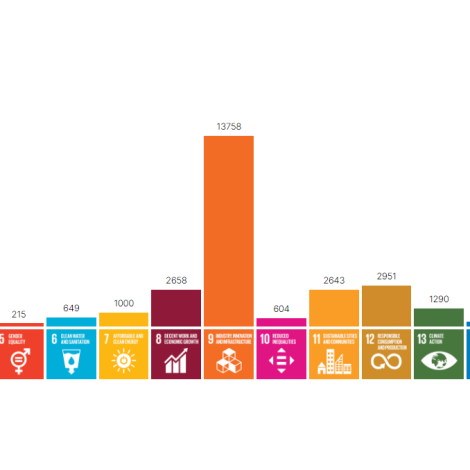Starting with a new Management System Standard in development now, engineers are needed to lend expertise to standards designed to advance the UN’s Sustainable Development Goals.
Jacob Færgemand is a food engineer and Scandinavian Director of Bureau Veritas who first proposed the idea for a new ISO Management System Standard for the United Nations Sustainable Development Goals. The goal is to increase trust in the organizations working to meet the SDGs through a standard that would offer a unified framework for organizations of all types to engage with their subset of the goals. The proposal for the new standard was approved by 25 ISO members who voted in December, and it awaits discussion at the next meeting of the ISO Technical Management Board March 1st.
The standard may become a milestone in the work toward achieving the SDGs, but its creation underway now illustrates the need for engineers in developing standards. Engineers pursuing work in the SDGs may not be aware of their value to standards creation, but they are needed.
“It is crucial that experts such as engineers are a key part of the process”
“An engineer is at the very core of the proposal, and if the proposal is accepted, he will chair the work in ISO,” Mette Sandager, a standardization consultant at Danish Standards, Denmark’s national standardization organization, told E4C by email.
ISO seeks technically trained experts to contribute to the development of standards focused on the SDGs. There are 32,297 ISO standards that apply to the 17 SDGs, and more are in development. The bulk of the standards focus on SDG 9, Industry, Innovation and Infrastructure where 13,758 standards govern work toward the goals that build resilient infrastructure and inclusive, sustainable industrialization.
Engineers are required in their development.
“It is crucial to the quality of the standards stating calculating methods, thresholds limits, formulas, or any kind of technical data that experts [such] as engineers are a key part of the process,” Ms. Sandager says.
ISO standards are developed by groups of experts from all over the world working as a part of larger technical committees, says Sandrine Tranchard, Communication Coordinator at the ISO Central Secretariat.
“These experts negotiate all aspects of the standard, including its scope, key definitions and content,” Ms. Tranchard says. Find more information on who develops standards at iso.org.
How can engineers take part in the process?
If the proposal for an ISO standard on the SDGs is accepted, all the ISO member bodies will inform their national stakeholders, Ms. Sandager says. It is then up to stakeholders to decide which experts should represent them.
But the process can also work in reverse. The reverse version of the process may be important to E4C members who are not involved in standards development but who would like to take part. Readers can contact their national ISO members. Or, for anyone interested in participating in the Managemnet Systems Standard, please find details and contact information for Ms. Sandager at this page on ds.dk.
We strongly encourage all engaged in any form of the SDG work to participate in the work, and we will seek experts including engineers to participate,” Ms. Sandager says.
How engineers can participate in standards development
Besides communicating directly with the organizers of standards under development, engineers have a number of ways to become involved in developing new ISO standards for sustainable development goals. This list provides an overview.
- Engineers can join ISO working groups: ISO working groups are responsible for developing and revising standards. Engineers can volunteer to participate in these groups and contribute their expertise to the development of new standards.
- Engineers can participate in national standardization bodies: National standardization bodies are responsible for representing their country’s interests in the development of ISO standards. Engineers can get involved by participating in these bodies and providing their expertise to the standardization process.
- Engineers can submit comments on draft standards: During the development of a standard, ISO often invites comments from interested parties. Engineers can provide their input by submitting comments on draft standards.
- Encourage organizations to become ISO members: Organizations can become members of ISO and participate in the standardization process. Engineers can encourage their organizations to sign on and provide support for the process.
- Finally, engineers can stay informed about ISO initiatives related to sustainable development goals: Visit the ISO website regularly and subscribe to ISO newsletters.

